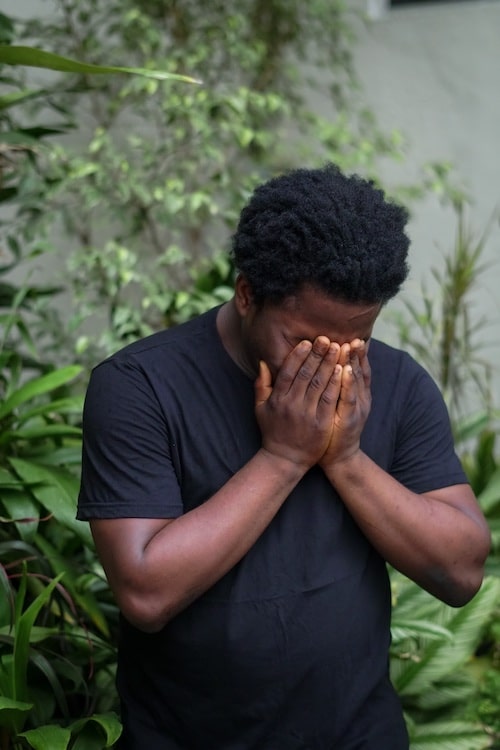We enjoyed an interesting and thought provoking in-person seminar with our host, Briony Martin. The…

Introducing Internal Family Systems (IFS) with Matthew Harwood (March 2018)
 This workshop introduced Internal Family Systems (IFS) which is a new style of therapy taking Active Imagination, pioneered by Jung, to a new level. Matthew Harwood trained at the CG Jung Institute in Zurich and is a senior (training) analyst with IGAP and has a special interest in working with dreams and active imagination.
This workshop introduced Internal Family Systems (IFS) which is a new style of therapy taking Active Imagination, pioneered by Jung, to a new level. Matthew Harwood trained at the CG Jung Institute in Zurich and is a senior (training) analyst with IGAP and has a special interest in working with dreams and active imagination.
We were invited to consider the Jungian theory that we are not unitary, but multiple; that we have sub-personalities; and that those sub-personalities are autonomous with independent view points, agendas and intelligences. These aspects may differ from what we ourselves think.
Matthew introduced us to the work of Dr Richard Schwartz in the USA who worked initially with Family Systems, practiced his own version of Active Imagination and developed IFS, subsequently teaching the skills to practitioners including Matthew. IFS has an established effectiveness successfully treating trauma, depression, anxiety as well as many other mental health issues.
We were introduced to the practice of asking the client to pay attention and have a dialogue with these sub-personalities, which are described in IFS as ‘parts’. Through a vivid demonstration through a video showing Richard Schwartz working with a client, we saw how a live session developed:
- The problem is presented and in the description of the problem, the therapist listened for what ‘parts’ are involved with the problem…so ‘a part of you wants/feels such and such’
- The client is invited to go inside find and focus on the ‘part’ in question that underlies the issue and may be hidden or unacknowledged.
Working with the client:
Step 1. First, a target ‘part’ is selected on which to focus initially, (eg. it might be a part that makes her overeat).
Step 2. The client is asked to focus on this part, fleshing it out to discover a feeling sensation or visual images; internal voice; a vague sense of ‘something there’. The questions might be; ‘what does it look like; where might it be located; how might you describe the sensation?’
Step 3. By asking the ‘Magic Question’…’How do you (the client) feel towards the part?’ the client is assisted to unblend or separate herself from the target part. Consequent on replies from the client, other ‘parts’ may be identified.
Step 4. Addressing the ‘part’ directly and with courtesy, to get its trust, the client in dialogue will ask the part to move aside. This may involve a more protracted process where several ‘parts’ are discovered and asked by the client to move aside.
Step 5. Having asked the Magic Question with each identification of a ‘part’, the client arrives at another iteration of the question where the answer from the client could be one of the following ‘c’ words:
Compassion, Curious, Confident, Calm, Creative, Clarity, Connectedness,Courage…
Step 6. The above indicates that the client is sufficiently ‘in self’ for the work to proceed and for the “exiled part”, which is often a hidden wound from childhood, to be explored, witnessed and healed.
Richard Schwartz’s comment “Get your client into self and the healing process will naturally unfold” depicts the non-interpretative style of this therapy. What is crucially different from conventional therapy is that the therapist guides the client to dialogue with the “parts” and “hidden exile”, and then report back to the therapist. It is the client who speaks with the ‘parts’, and not the therapist. The therapist does not interpret!
The above summary only gives a very small indication and perhaps a flavour of the process we were introduced to, through theoretical and experiential teaching and by viewing/discussing the video of Richard Schwartz and client as mentioned above. Additionally, Matthew gave us a detailed, live demonstration of an IFS session with a volunteer participant from the group, which was emotionally transformational for the participant.
The process is complex and we discovered how difficult it can be when we tried our own practice session with a partner. It was a good day with 18 of us engaged fully with the IFS process. Matthew does further introductory training days which can be accessed through his email: matthew.harwood@zen.co.uk
By: Angy Man, (delegate) March 2018.
Edited by: Wendy Bramham
We were thrilled with the delegates’ written feedback and average scores from 17 feedback sheets as follows:
Matthew Harwood as speaker: 4.88 out of 5
Organisation of event: 5 out of 5
Just a selection of written comments:
“Wonderful – miraculous!”
“All excellent. Informative, interesting and leaves me wanting to know more”
“Really great workshop. Good balance of theory and practical demo with questions. Also an excellent guided mediation. Thank you” (Dido Denman, Newbury)
“Brilliant day on fascinating topic with excellent speaker. Learned loads and hungry to explore more. Practical and profound.” (Helen Franklin, Newbury)
“Matthew was an engaging and knowledgeable speaker”
“Excellent mixture of theory and practical/demo and video. Very clear speaker”
Thank you to everyone for attending, participating and for their feedback.
Wendy Bramham
March 2018
Postscript several weeks after the seminar from a volunteer delegate who received a 50 minute IFS session from Matthew as a demonstration of how IFS works with a real issue:
“I joined this workshop because I was interested in the subject, but I didn’t realise what a surprise I was in for! My problem has been a lingering feeling of guilt in spite of all courses, trainings and psychotherapy I have done in years past. Through the IFS method of having dialogues with sub-personalities and with the core self, it was all cleared in less than an hour. I feel now fully whole, healed and ready to take on my task in life. This was a miracle for me and I hope IFS becomes more widespread.”
Elly Nickson, chartered physiotherapist and healer.




This Post Has 0 Comments